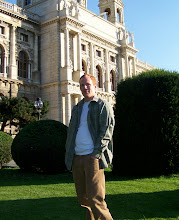Conversations With God (Books 2 and 3) Neale Donald Walsch 8.5/10 |
It’s so hard to give these books a high score. It was difficult to get through them: they both significantly slowed down my reading schedule as I could only handle so much of them at a time. I reviewed the first book earlier: 2 and 3 didn’t stray too far away from the path laid out in book 1. Personally I found book 2 much more agreeable than book 3: book 3 was a bit of an idealistic mess, constantly re-treading on to cover material from the first two books when it wasn’t making absurd claims about the ideal society.
I could complain and complain about these books, but the fact is that much of the truths in the book resonate well with my own moral standpoint. I have the good fortune of being able to dismiss the arguably preposterous theme of the book: that the author has a direct connection with God, and can freely ask and receive answers to questions he asks. God has a suspicious tendency to never mention anything out of the realm of the author’s experience, leading the astute reader to question whether Walsch is, at the core, “making it all up”. My personal opinion: he is making it all up. I just don’t care about the source – if there is valuable knowledge or wisdom, I’ll listen.
The primary truth that I finish the series with was never specifically stated: “we have the best answers to our own questions”. We know how to solve our problems, we just need to learn to listen. If I’m ever giving advice, that’s the path I try to take: I listen to find out what the advice-asker really thinks he or she should do, and then advise that path of action. In my personal experience, if someone is asking for advice, what they are often looking for is actually affirmation or justification of the choice they know they should make.
This is rarely a conscious process. If it were a conscious process, I think pride (or shame) would be likely to get in the way. It’s rather ironic that pride might keep us from living life as we’d like to – it makes that pride seem rather misplaced.
Either way, back to the book. I love affirming that we make our own truth, that we are the ones who control who, what, and where we are. It’s humbling, especially when it’s so tempting to place the blame for our misfortunes and faults outside our area of control. It’s a big step in life to realize that we are fully and wholly responsible for our position and station in life, and that we have the capacity and the potential to make the life we want as long as we’re willing to do what’s necessary. I’m sure some who are reading this will wonder at my youthful ignorance – how I’ve managed to believe in this ideal society where we’re all created equal and everyone is blind to race, color, sex, or whatever discrimination we claim.
The fact is, I can only speak from my own experience. I know that I can’t have everything I want now – but if I choose to keep wanting something and do everything I can to have it, I will have it. I’ve yet to meet someone who I felt had any more or less potential.
